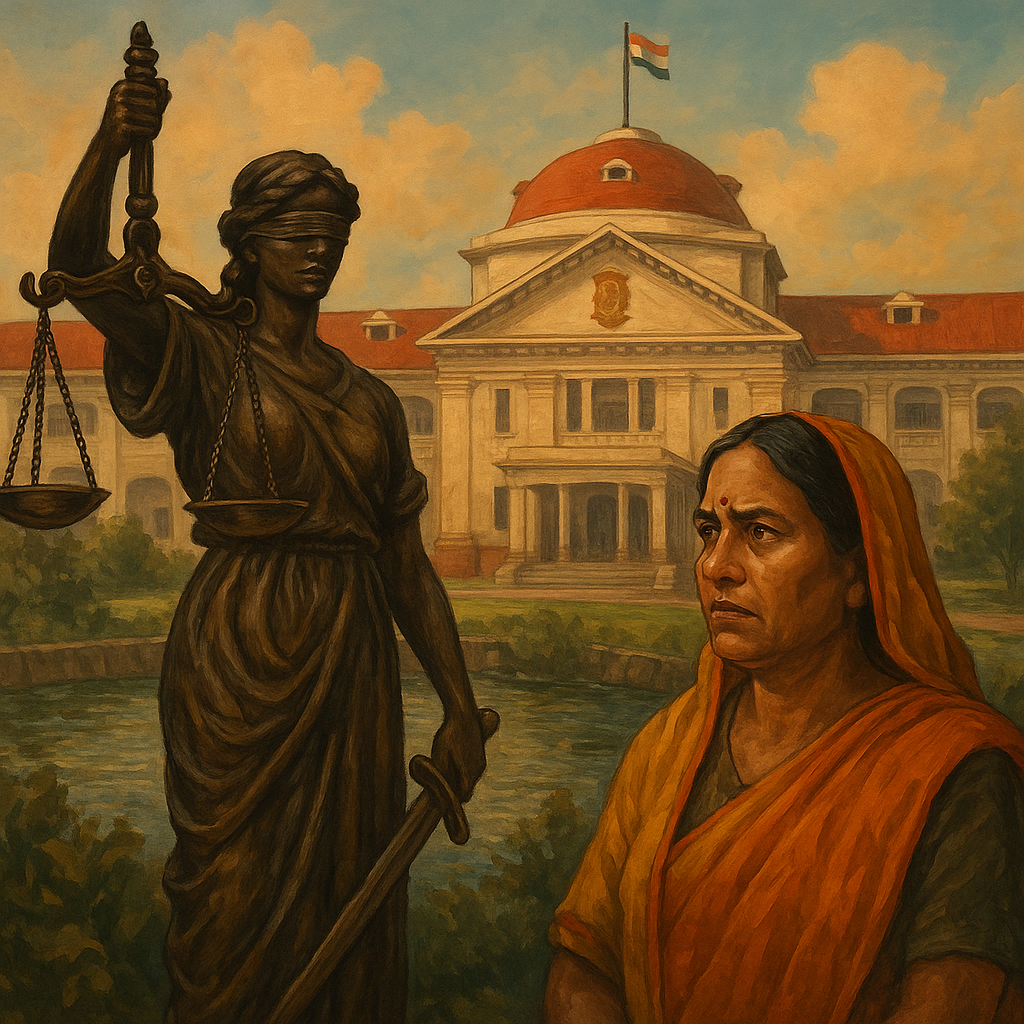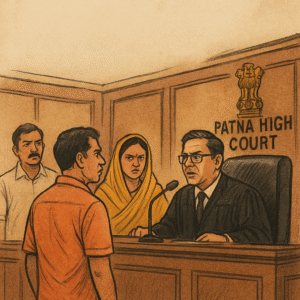Simplified Explanation of the Judgment
In Letters Patent Appeal No. 276 of 2019, the Patna High Court upheld the decision of a Single Judge rejecting a widow’s plea that a pond (Pokhar) adjacent to her ancestral house in Madhubani was her private property. The appellant, who claimed to have inherited the pond through her late husband, challenged its settlement by the State Government in favour of a local Fishermen Cooperative Society.
The dispute centered around C.S. Plot No. 3392 (R.S. Plot No. 5680), measuring over 7 acres. The appellant asserted that this Pokhar had been in possession of her family since the days of the Zamindari system and was wrongly settled by authorities without informing her. She argued that the pond was part of her homestead and not government property, and she had been regularly paying rent and maintaining the land.
Despite raising objections before various authorities including the police, Circle Officer, and District Magistrate, she failed to receive official documents or intervention. It was only after she discovered a letter from the District Fisheries Officer confirming the settlement of the pond with the respondent Cooperative Society that she moved the High Court under a writ petition.
However, the respondents, including state authorities and the Cooperative Society, maintained that the pond had vested in the State post-Zamindari abolition and had been rightly settled as a government fishery. They argued that the name of the appellant’s husband was incorrectly recorded in the revisional survey, and the Circle Officer was already taking steps to correct the land records. The appellant, they claimed, was suppressing material facts—specifically her unsuccessful complaint before the Public Grievance Redressal Officer, which had concluded that the pond was government property.
The Division Bench agreed with the lower court that the pond did not qualify as a “homestead” under the Bihar Land Reforms Act, 1950. It highlighted the legal distinction between land being merely “adjacent” to a dwelling versus “appertaining” to it. A pond, to be treated as homestead, must be integrally linked to the residential house. In this case, the pond and dwelling were not shown to be part of one homogenous unit.
Additionally, the Court noted that the appellant had failed to disclose the prior rejection of her claim by the Public Grievance Redressal Forum, a statutory body, which amounted to suppression of a material fact. The Court stressed that a litigant seeking relief must approach the writ court with clean hands.
Accordingly, the Court held that the appellant’s claims lacked merit and dismissed the appeal, affirming the original settlement in favour of the cooperative society.
Significance or Implication of the Judgment
This judgment reinforces the principle that land ownership and possession claims must be supported by clear legal title and documentation. The Court clarified the scope of “homestead” under the Bihar Land Reforms Act, drawing a legal line between proximity and functional integration. It also serves as a caution to litigants: suppression of material facts, especially regarding prior proceedings, can be fatal to their case.
For government authorities, the decision confirms the validity of fishery settlements made under lawful classification of land. For the public, it emphasizes that mere possession or rent receipts do not equate to title, particularly if the land has been vested in the State.
Legal Issue(s) Decided and the Court’s Decision
- Whether the appellant’s pond was private homestead land?
- No, the Court held that the pond was merely adjacent and not legally “appertaining” to the homestead.
- Whether the writ petition was maintainable despite prior grievance proceedings?
- No, the Court ruled that suppression of material facts regarding prior proceedings rendered the writ untenable.
- Did the appellant have title over the disputed Pokhar?
- No, the land had vested in the State post-Zamindari abolition, and the appellant failed to prove legal ownership.
- Whether rent receipts established title?
- No, rent receipts alone do not confer title in absence of valid ownership documents.
Judgments Relied Upon or Cited by Court
- Satya Pal Anand v. State of Madhya Pradesh, (2016) 10 SCC 767
- Welcome Hotel v. State of Andhra Pradesh, (1983) 4 SCC 575
- K.D. Sharma v. Steel Authority of India Ltd., (2008) 12 SCC 481
Case Title
Manju Singh vs. The State of Bihar & Others
Case Number
Letters Patent Appeal No. 276 of 2019
(Civil Writ Jurisdiction Case No. 11497 of 2018)
Citation(s)
2020 (1) PLJR 280
Coram and Names of Judges
- Hon’ble Mr. Justice Ashwani Kumar Singh
- Hon’ble Mr. Justice Prakash Chandra Jaiswal
Names of Advocates and who they appeared for
- Mr. Kamal Nayan Choubey, Sr. Advocate with Mr. Ambuj Nayan Chaubey, Mr. Dineshwar Pandey, Mr. Animesh Kumar, Mr. Yogendra Kumar Dwivedi (for the Appellant)
- Mrs. Nutan Sahay, AC to AAG-12 (for the State)
- Mr. Amit Srivastava, Mr. Girish Pandey, Mr. Chandan Priyadarshi (for Respondent No. 8)
Link to Judgment
https://patnahighcourt.gov.in/viewjudgment/MyMyNzYjMjAxOSMxI04=-KruyJwGai3g=
If you found this explanation helpful and wish to stay informed about how legal developments may affect your rights in Bihar, you may consider following Samvida Law Associates for more updates.








